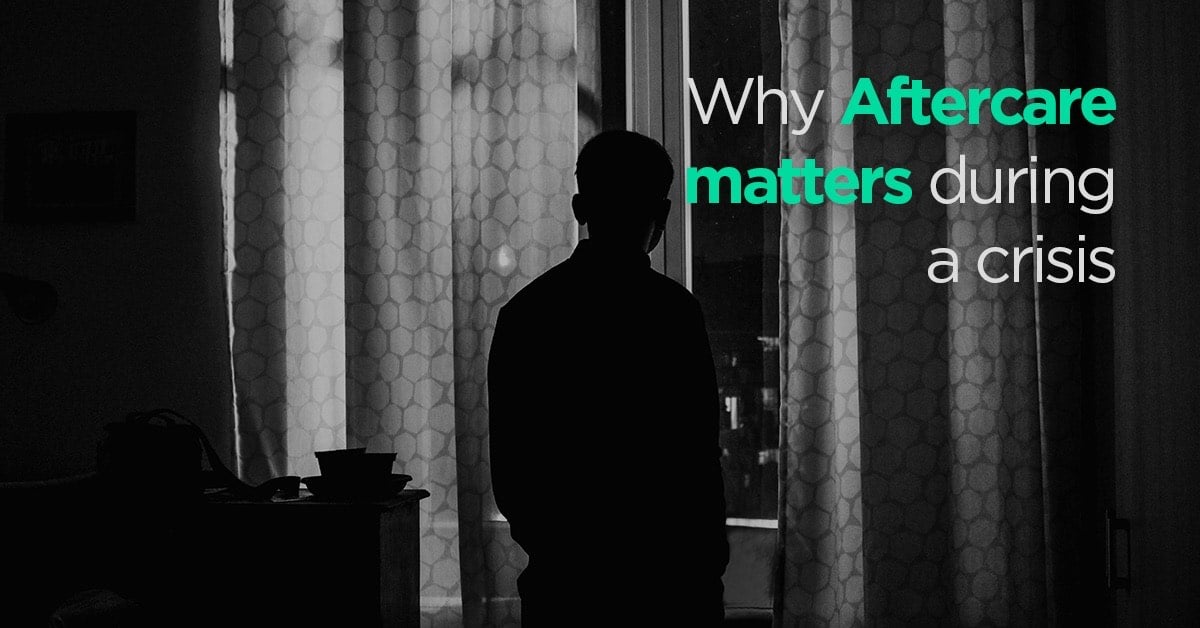Why Aftercare Matters More During the Corona Virus Pandemic
By: Ellery Bowker, Aftercare.com
The out-of-nowhere coronavirus pandemic is upon us (I hope and pray it’s nearing its peak), and it has really rocked the funeral business, and despite our feelings today, better days are ahead. When things shock us and threaten our livelihood, we often panic. We react, we reel, and we go into survival mode, but, in time, we always rebound.
However, it’s important to remember that as you’re trying to figure out how to operate your funeral home with the restrictive rules banning gatherings, there are families at home grieving, and have now been cut off from what helps them most — interaction with others.
When trying times are upon us, we generally adapt; but in the case of the virus, and the new rules that came about, it might be easier for your funeral home to move forward than for your grieving families.
You see, as a funeral home that needs revenue, you’ll adapt to any new way of doing business required to keep the lights on and live to fight another day. You simply must. You need to serve families to survive, and today, that new way will force you to adopt online collaboration as a means of doing that. You’ll learn Zoom, allow families to make arrangements online, embrace funeral streaming, etc. You’ll quickly become adept at doing things in a way that a few weeks ago wasn’t even on your radar.
As a member of the funeral profession, you’re getting guidance, suggestions, and advice from our associations. Vendors are happily demonstrating ways to pivot, and some are selflessly giving their services away to assist you in the spirit of “we’re in this together.” So, as hard as it is to change, you’ve gotten help with your new reality. A key point to remember is that you didn’t have to ask for help. I couldn’t be prouder of how fast our associations and colleagues jumped in to offer guidance and support that helped you catch your breath and start to figure things out. You were not alone.
Now, consider the families you’ve served in the past few months. A big part of their healing is social interaction, and that has been taken away. Quite abruptly, in fact. These families don’t have the privilege of associations, vendors, partners, and colleagues giving them advice on how to grieve differently now that the rules have changed. Now, while you’re figuring your business out, they’re trying to catch their breath. Some have a lot of family and support, while others might feel isolated even further.
What those families need now is outreach. They need to hear from you. They need reassurance that you are there for them and are willing to help with anything they need. Just as funeral homes look to their larger support structure (E.g., our local and national associations) for help, families will naturally consider your funeral home as a source of support, but they don’t tell you that.
In this crisis funeral homes need to be proactive with outreach. Families will not come out and tell you they’re scared, alone, and now feel cut off from social activities that helped them move forward. Recognizing this as an opportunity and actively reaching out to your families can reap the rewards for your funeral home. You’ll build closer relationships, increase customer loyalty, and give reasons for them to help you with word of mouth marketing. The results from a small touchpoint can be amplified quickly and bring much more value to the funeral home than you give. It’s almost unfair.
As with anything you do, you can be simple, or you can go all-in. I think any touchpoint is better than none, so just do what you can. You can easily let a family know you are thinking about them by sending a card, a text, a phone call, or an email.
If you have the time and help to put it together, a printed or online resource you could provide that would offer suggestions or alternatives to find support instead of meeting in person would be beneficial and appreciated. Consider how fast our associations and funeral colleagues jumped in to help find solutions when gatherings became restricted. Who is offering grieving families alternatives to their normal behavior?
In summary, I’m merely suggesting that funeral homes look forward to power through the hopefully short-term restrictions, but also look backward to provide support for those they’ve already served.
I will caution that altruism must be your driver, but let’s also not forget how competitive this business is today and recognize how much free marketing you can get by loyal families sharing how your funeral home goes the extra mile.
Again, letting a family know they matter to you is the result you’re after, and it doesn’t have to be expensive or complicated. Dr. Jason Troyer, a well-known and respected grief expert, explains that outreach need not always be comprehensive, but offers that grieving families can feel caring through phone calls, texts, cards, and other means. Often, those simple touchpoints are meaningful, yet are easy to create/deliver for the funeral home. A heartfelt card has always been timeless, but its value greatly increases in the absence of regular social interactions.
The last week has been rough. All of us are thinking about how we can cut back, tighten up, make our resources stretch further, etc. I believe this is the perfect time to practice outreach as it’s low cost and high impact. In business, that’s always a win.




